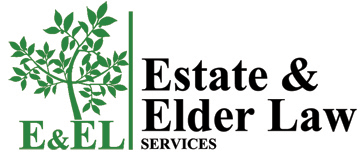Professional Help Can Un-Sandwich the Sandwich Generation

If you are taking care of your kids all day and taking care of your parents in your spare time, you understand the term sandwich generation. With your kids leaving the nest, you may find yourself devoting more time to your aging parents – a role that can be confusing, frustrating and exhausting.
Although it may help to know that you are not alone – the US Census Bureau estimates there 44 million unpaid eldercare providers in this country – it doesn’t help.
This role reversal is confusing, because nature tells us that parents care for their children. If, as adults, we gradually become caregivers to our parents, it can feel like a loss.
It’s frustrating because parents often don’t want help, or if they do want help they also want to maintain control. They can seem to be ungrateful – because the role reversal is new for them, too. They don’t know how to behave any more than you do.
It’s also frustrating because if your own children have left the nest, you probably expected to be kicking your career into high gear. Your parent’s needs are distracting if not derailing your plans.
Managing your career, your family and your parents’ needs requires time and energy. It’s exhausting and emotionally draining but inaction or miscommunication can lead to conflict, litigation and even calls to the police!
If this picture rings true for you or your future, you should take heart in the fact that some highly qualified professionals are available to help you – whether you are the parent who wants to avoid creating problems for your adult children or you are the adult child already starting down the care-giving path.
You may find your super hero in a local Aging Life Care professional or Geriatric Care Manager. These experts in aging offer a host of services which can make life easier for both older parents and adult children.
They can:
- Create a care plan that everyone likes by negotiating disagreements between parents and children as well as conflicts between siblings.
- Find reliable local services to help seniors with daily tasks from housekeeping to personal hygiene to shopping and cooking to make it possible for seniors stay in their own home.
- Find an appropriate new home for seniors who want a retirement community or need assisted living.
- Help adult children who live ‘away’ coordinate local care for their senior parents. In many cases they become a “professional relative” to make sure the care that is expected is the care that is provided. They can take seniors to doctors’ appointments, step in in an emergency hospitalization or crisis and advocate for them as necessary.
- Get seniors to open up with concerns they don’t want to share with their children.
- Help everyone understand health insurance, government benefits, and access local resources.
- Take the emotion out of conversations with care-givers or facilities which are not meeting the needs of the family or senior.
Geriatric Care Managers or Aging Life Care professionals are health and human services specialist who are educated and have experience in social work, gerontology, nursing or similar fields with a focus on elder care. Make sure the one you hire is certified by their professional associations.
Typically, they will charge a fee for an evaluation and then charge by the hour for services – expenses which may not be covered by insurance. The cost of an initial evaluation varies and may be expensive, according to National Institute on Aging, but in some cases they may also save you money by helping you apply for benefits and finding resources you didn’t know about. You should ask about the fee structure when you interview a potential manager to help you.
These websites can help you find a geriatric care manager: aginglifecare.org or eldercare.gov.
Finding the help you need can let you be a kid again – to your aging parent, as least.
